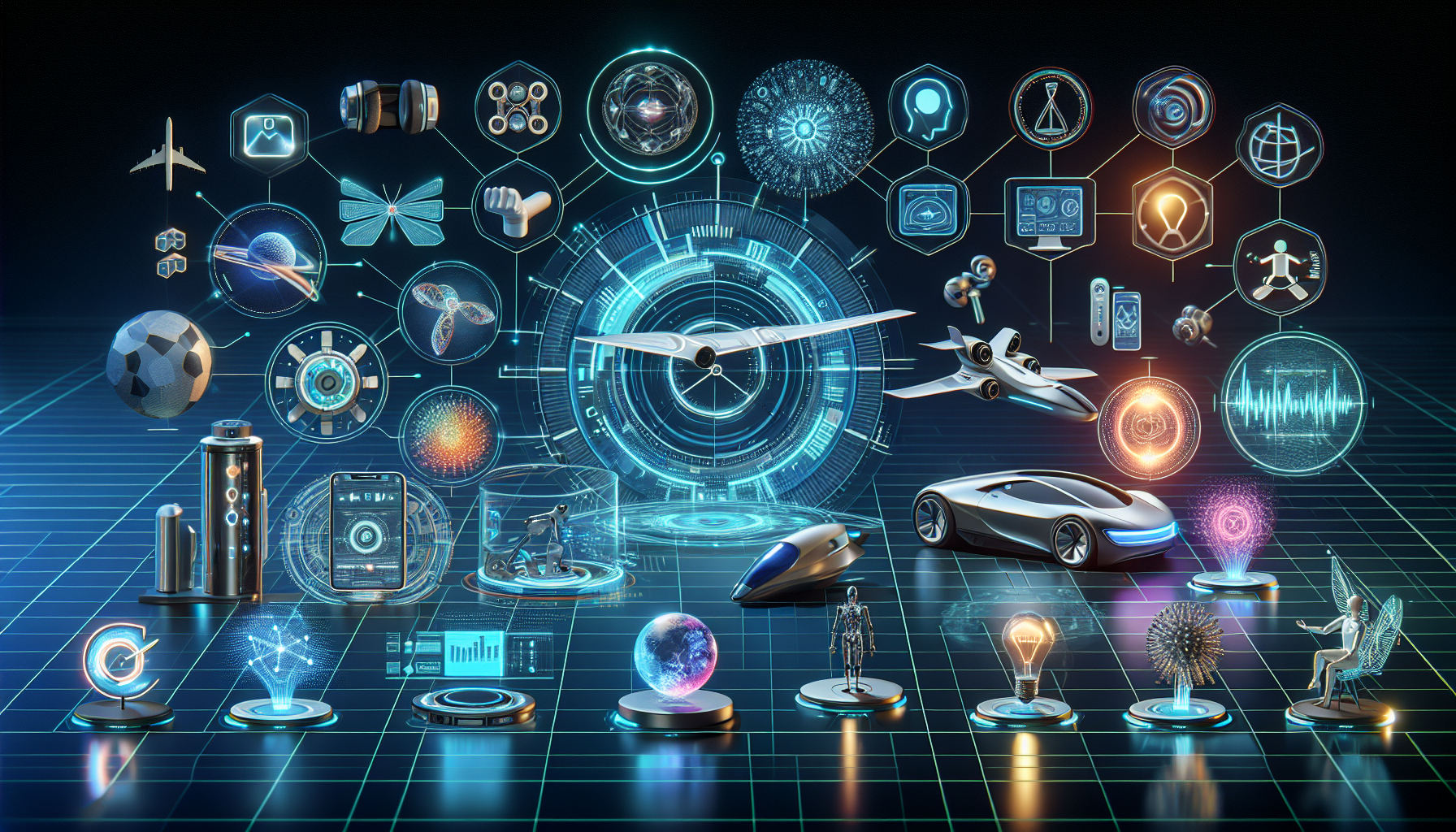1. Quantum Computing Revolution
What is Quantum Computing?
Quantum computing represents a remarkable leap forward in technology, leveraging the principles of quantum mechanics to process information in ways that traditional computers cannot. By using qubits, which can exist in multiple states simultaneously, quantum computers can perform complex calculations at unprecedented speeds.
Applications in 2025
By 2025, industries such as pharmaceuticals, finance, and artificial intelligence will see a transformative impact of quantum computing. For instance, drug discovery processes will benefit immensely from the ability to simulate molecular interactions, enabling faster and more efficient development of new medications.
2. Advanced Robotics
Enhanced Capabilities
The robotics of 2025 are set to be more autonomous and versatile than ever before. Advances in machine learning and AI will enable robots to make real-time decisions, adapt to new environments, and perform tasks alongside humans safely.
Robots in Everyday Life
From personal assistants to automated home maintenance systems, robots will play a larger role in daily life. Expect to see robots that can manage household chores, assist the elderly, and even provide companionship.
3. Augmented Reality (AR) and Virtual Reality (VR)
Immersive Experiences
AR and VR technologies will reshape entertainment, education, and retail in 2025. With the advent of more affordable and powerful devices, these technologies will enable users to immerse themselves in virtual worlds or superimpose digital information onto their physical surroundings seamlessly.
Applications in Various Fields
In education, AR will provide interactive learning experiences, while VR can simulate environments for training purposes. Retailers will leverage AR to allow customers to visualize products in their homes before making a purchase.
4. Green Hydrogen Economy
The Rise of Hydrogen Energy
As the world continues to grapple with climate change, green hydrogen—which is produced using renewable energy sources—will emerge as a pivotal player in the energy transition. In 2025, investment in hydrogen production and infrastructure will soar.
Applications Across Industries
From powering vehicles to providing energy for industrial processes, green hydrogen will provide a clean alternative to fossil fuels. This shift will be crucial for hard-to-decarbonize sectors such as shipping and heavy industry.
5. Biodegradable Electronics
Eco-Friendly Technology
With growing environmental awareness, biodegradable electronics will gain traction in 2025. These devices, made from organic materials, offer a sustainable alternative to traditional electronics that contribute to e-waste.
Impact on Consumer Electronics
From smartphones to wearable devices, manufacturers will explore biodegradable options, reducing the environmental footprint and promoting a circular economy.
6. Personalized Medicine
The Future of Healthcare
Advancements in genomics and biotechnology will usher in an era of personalized medicine. In 2025, treatments tailored to an individual’s genetic makeup will become more common, increasing their effectiveness and reducing side effects.
Customized Treatments
This innovation will allow healthcare providers to create bespoke treatment plans, from cancer therapies to chronic disease management, significantly improving patient outcomes.
7. Space-Based Solar Power
Harnessing Solar Energy from Space
By 2025, the concept of space-based solar power will be closer to reality. Satellites equipped with solar panels will capture sunlight and transmit it back to Earth in the form of microwave energy, offering a continuous and clean energy source.
Advantages of Space-Based Energy
The potential benefits include the ability to provide power to remote or disaster-stricken areas and significantly reduce reliance on terrestrial energy sources, helping to alleviate energy shortages.
8. Decentralized Finance (DeFi)
Transforming Financial Systems
Decentralized finance, or DeFi, will continue to grow in popularity by 2025, offering an alternative to traditional banking. Built on blockchain technology, DeFi enables peer-to-peer lending, trading, and earning interest without intermediaries.
Benefits and Risks
While DeFi provides greater access to financial services, it also comes with risks related to security and regulation. Understanding these elements will be essential for users navigating this new financial landscape.
9. Blockchain Beyond Cryptocurrencies
Wider Applications of Blockchain Technology
In 2025, the applications of blockchain technology will extend well beyond cryptocurrencies. Industries will adopt blockchain for supply chain transparency, voting systems, and secure sharing of medical records.
Enhancing Trust and Security
The transparency and immutability of blockchain will enhance trust and security in various sectors, making it a crucial tool for combating fraud and increasing operational efficiency.
10. 5G and Beyond
Revolutionizing Connectivity
By 2025, the rollout of 5G technology will significantly enhance connectivity. With faster speeds and lower latency, 5G will enable new applications in areas such as remote healthcare, smart cities, and autonomous vehicles.
The Future of Communication
As 5G becomes more mainstream, we can expect innovations that leverage its capabilities, paving the way for smarter, more interconnected lives. The next generation of connectivity, such as 6G, will be on the horizon, promising even greater advancements.
